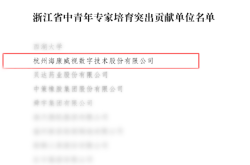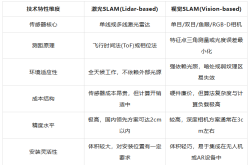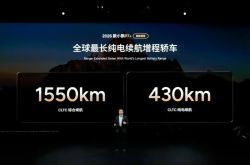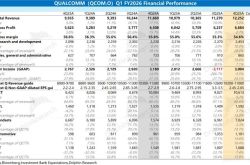US Unveils Framework for AI Export Controls, Aiming for Global Restriction on AI Chips?
![]() 01/20 2025
01/20 2025
![]() 504
504

Source: IntelliCar Tech
On January 13, 2025, the Biden-Harris Administration in the United States released an Interim Final Rule on AI Diffusion. This regulatory action is anticipated to impose global restrictions and stringent licensing requirements on the export of advanced American integrated circuits, raising concerns among US technology firms and the Semiconductor Industry Association (SIA).
On the same day, China's Ministry of Commerce spokesperson voiced strong opposition to the US's AI export control measures. These measures tighten controls on AI chips, model parameters, and extend extraterritorial jurisdiction, creating obstacles for third parties engaging in normal trade with China. Previously, US high-tech companies and industry groups had expressed dissatisfaction and concern through various channels, arguing that the measures were hastily formulated without adequate consultation and constituted excessive regulation in the AI field, with potentially severe adverse consequences. They urged the Biden Administration to halt their implementation. However, the Administration ignored industry calls and proceeded, exemplifying the generalization of national security concepts and abuse of export controls, a blatant violation of international multilateral economic and trade rules. This abuse severely hampers normal economic and trade exchanges, disrupts market rules and the international economic order, hinders global technological innovation, and harms the interests of enterprises worldwide, including US companies.
On January 14, China's Ministry of Foreign Affairs spokesperson stated that firm measures would be taken to safeguard the legitimate rights and interests of Chinese enterprises. The spokesperson emphasized that the US was politicizing and weaponizing economic, trade, and technological issues, abusing export controls, and maliciously suppressing China, severely disrupting market rules and the international economic order, affecting global supply chain stability, and damaging the interests of China, the US, and businesses worldwide.

Content of the US AI Diffusion Framework
The AI Diffusion Framework outlines a tailored strategy to control the dissemination of advanced AI models. This strategy ensures that the most advanced US AI model weights are stored outside the US under stringent security conditions and that the large clusters of advanced integrated circuits required for their training are built with minimal risk of diversion or misuse. Additionally, the rule mandates that any export, re-export, or transfer (including domestic) of advanced computing integrated circuits or the model weights of the most advanced AI models to foreign end-users must obtain the corresponding license.

The Biden Administration emphasized in its statement that preventing advanced AI technology from falling into the hands of malicious actors while ensuring access for compliant foreign entities is crucial. Entities and destinations willing to adhere to specific safety and security measures will be granted access to these AI models and large IC clusters.
The rule update outlined by the Biden Administration focuses on three main areas:
Firstly, it updates controls on advanced computing chips, requiring authorizations for exports, re-exports, and transfers (domestic) involving additional countries. However, the rule includes several license exceptions to ensure that commercial transactions posing no national security risk can proceed, enabling broader AI benefits.
Secondly, it introduces new controls on the model weights of the most advanced closed-source AI models. These initially apply to models trained with 10^26 or more computational operations, requiring authorization for export, re-export, or transfer (domestic) to various countries. Additionally, a new foreign direct product rule applies these controls to certain model weights produced abroad using US technology or equipment for advanced computing chips, with similar license exceptions.
Thirdly, BIS will implement security conditions to protect the storage locations of the most advanced models, safeguard US national security, and mitigate the risk of advanced computing chip diversion.
The Biden Administration stated that the regulatory framework comprises six main elements:
1. No restrictions on chip sales to 18 major allies and partners (Australia, Belgium, Canada, Denmark, Finland, France, Germany, Ireland, Italy, Japan, Netherlands, New Zealand, Norway, South Korea, Spain, Sweden, United Kingdom, Taiwan, China). This flexibility allows jurisdictions with robust technology protection systems aligned with US interests to benefit from large-scale procurements.
2. Chip orders with a collective computational power of up to approximately 1,700 advanced GPUs do not require a license and do not count towards the national chip cap. This category covers the majority of chip orders, particularly those for benign purposes by universities, medical institutions, and research bodies, streamlining processing and accelerating low-risk US technology shipments worldwide.
3. Entities meeting high security and trust standards headquartered in close allies and partners can obtain 'Universally Validated End User' (UVEU) status, enabling them to deploy up to 7% of global AI computing power across countries, potentially amounting to hundreds of thousands of chips. This trusted status is granted globally and enduringly, enabling responsible entities to expand rapidly and flexibly, reinforcing US and allied global leadership while keeping cutting-edge training within domestic borders.
4. Entities meeting the same security requirements headquartered in any non-concerned destination can apply for 'Nationally Validated End User' status, allowing them to purchase computing power equivalent to 320,000 advanced GPUs over two years. This provision enables trusted national entities to leverage advanced US technology for local, governmental, and regional customers while mitigating diversion risks.
5. Non-VEU entities outside close allies can still purchase significant computing power, equivalent to 50,000 advanced GPUs per country, ensuring US technology can serve foreign governments, healthcare providers, and other local enterprises.
6. Intergovernmental agreements foster an international ecosystem of shared values in AI development, deployment, and use. Governments signing these agreements, aligning their export controls, clean energy, and technology security efforts with the US, can double their chip cap (currently up to 100,000 advanced GPUs).
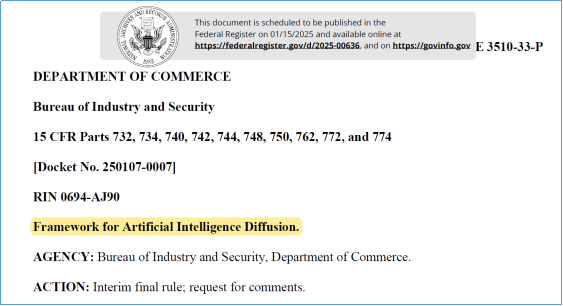
The Biden Administration's new rule takes significant measures against concerned countries, limiting their access to advanced AI systems and training computing power. These actions include:
1. Ensuring advanced semiconductors sold abroad are not used by concerned countries to train advanced AI systems, while allowing access for general applications ranging from telecommunications to banking.
2. Restricting the transfer of model weights for advanced closed-weight models to non-trusted participants, without prohibiting the release of open-weight model weights.
3. Establishing security standards to protect the weights of advanced closed-weight AI models, enabling safe global storage and use while preventing access by illegitimate adversaries.
The US government stated that the rule builds on previous regulations aimed at protecting national security, including chip controls in October 2022 and October 2023.

The 'Final Rule' Sparks Strong Opposition from US Technology Companies
The 'Final Rule' issued by the Bureau of Industry and Security (BIS) of the US Department of Commerce extends the 'Export Control Rules for Advanced Computing Chips and Semiconductor Manufacturing Equipment' from October 2022, which primarily restricted chip performance for exports to China and other regions.
The 'Final Rule' has sparked strong opposition from US tech giants like NVIDIA and Oracle, as well as the Semiconductor Industry Association (SIA). The Biden Administration issued the rule without consulting them.
NVIDIA issued a statement on January 13, criticizing the Biden Administration for attempting to restrict mainstream computing applications through unprecedented and misleading regulations, potentially undermining global innovation and economic growth. NVIDIA emphasized that this rule undermines US AI leadership.
Oracle stated that the 'Final Rule' is a roadmap for the US to lose its AI leadership, affecting Oracle's chip procurement and data center deployment plans overseas, contrary to its business interests.
The Semiconductor Industry Association (SIA) issued a statement on January 13, noting that a policy change of significant scale and impact was hastily implemented without seeking effective industry feedback on the eve of the presidential transition. The new rule risks strategic markets falling to competitors, with unintended long-term negative impacts on the US economy and global competitiveness in semiconductors and AI.
The US industry pointed out that the 'Final Rule' was forcibly passed before the end of the Biden Administration, without consultation with US technology companies, undermining US AI leadership.
The 'Final Rule' will take effect after a 120-day public comment period. Given President Biden's term ends on January 20 and President-elect Trump will take office, the rule's final implementation will require Trump Administration approval.
Translation source of the content of the US AI Diffusion Framework:
https://www.whitehouse.gov/briefing-room/statements-releases/2025/01/13/fact-sheet-ensuring-u-s-security-and-economic-strength-in-the-age-of-artificial-intelligence/
Disclaimer:
All works on this official account labeled 'Source: XXX (non-IntelliCar Tech)' are reproduced from other media. The purpose is to deliver and share more information and does not represent the platform's endorsement of the views or responsibility for their authenticity. The copyright belongs to the original author. If there is any infringement, please contact us for deletion.



